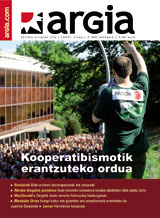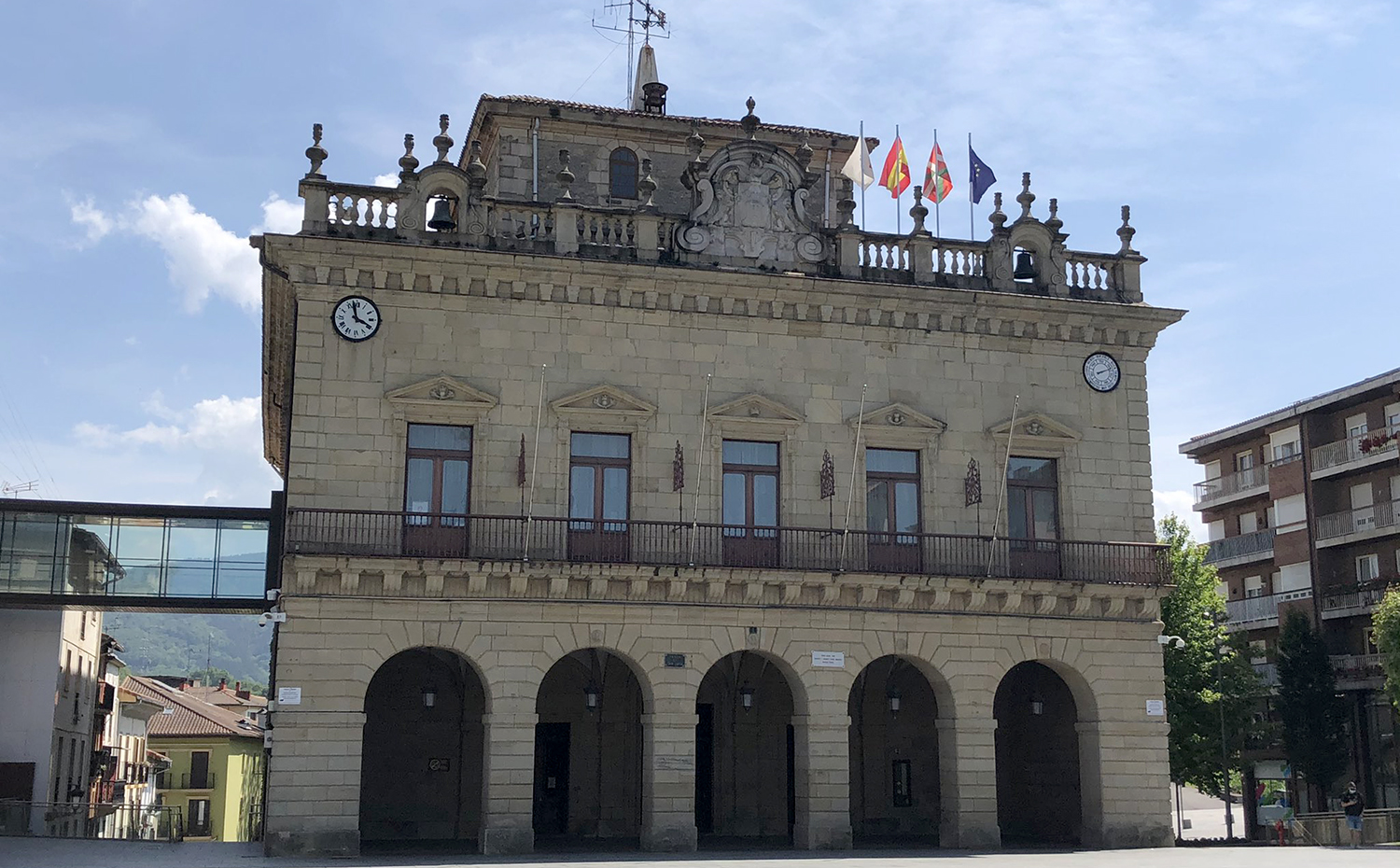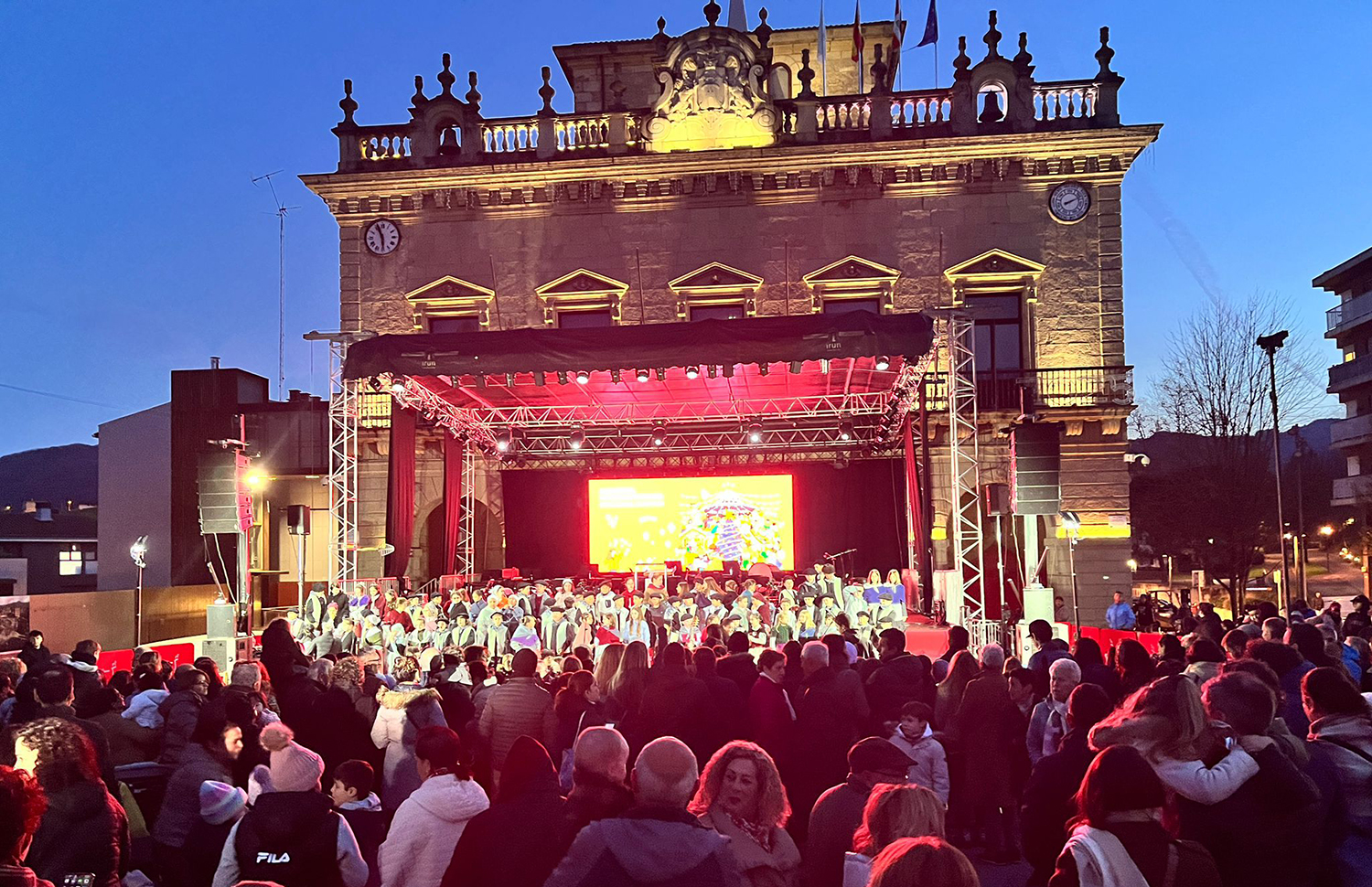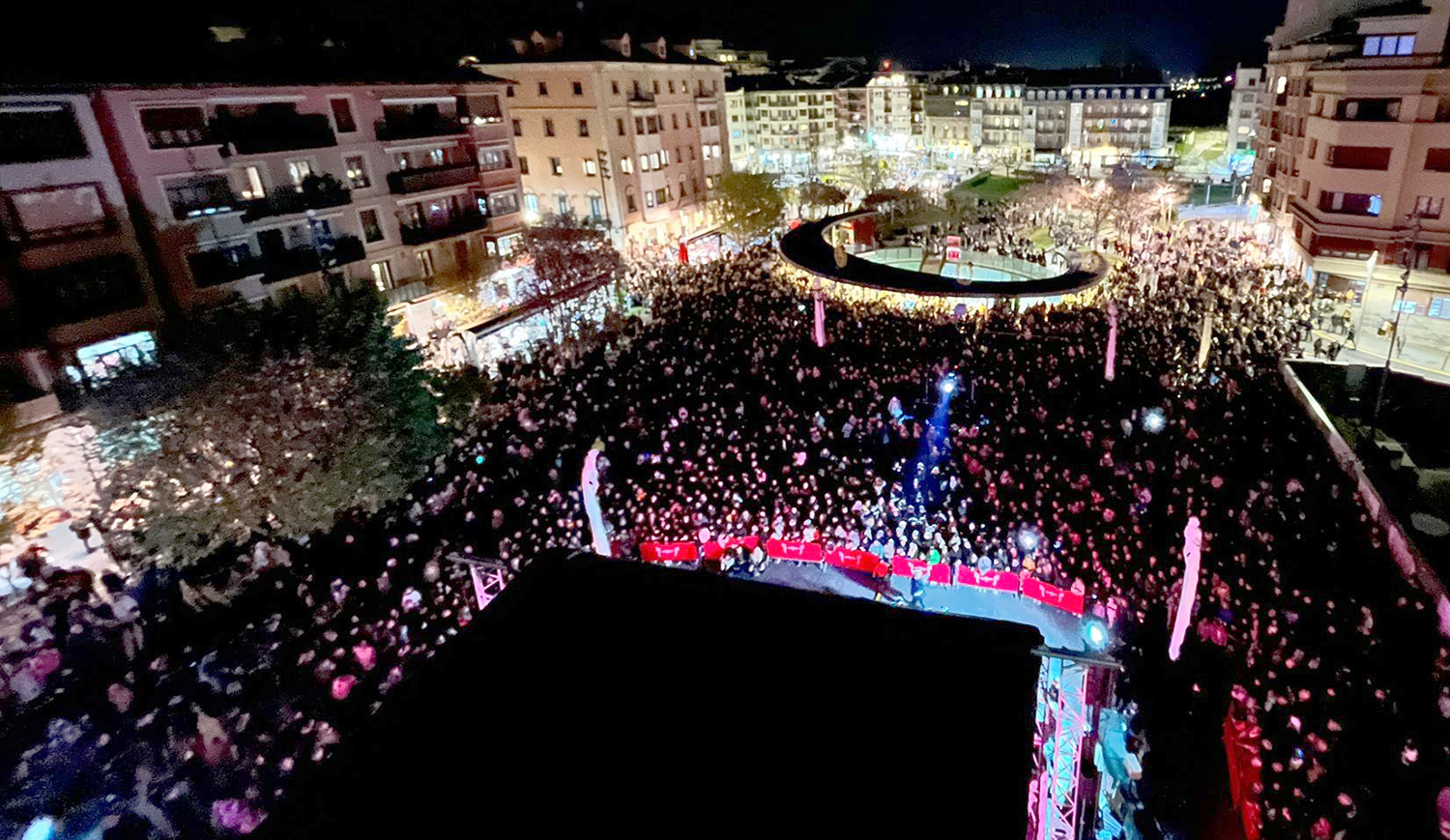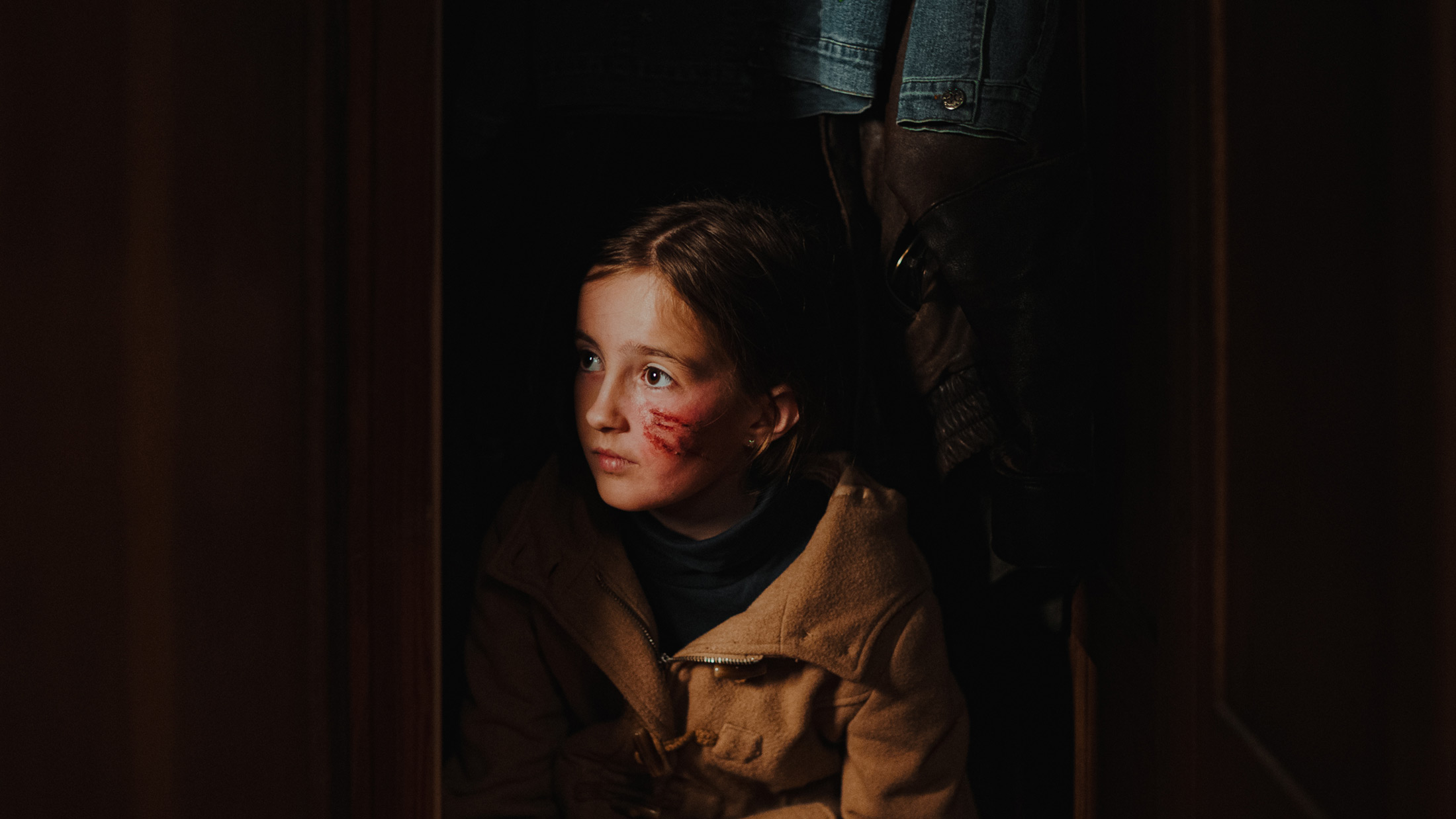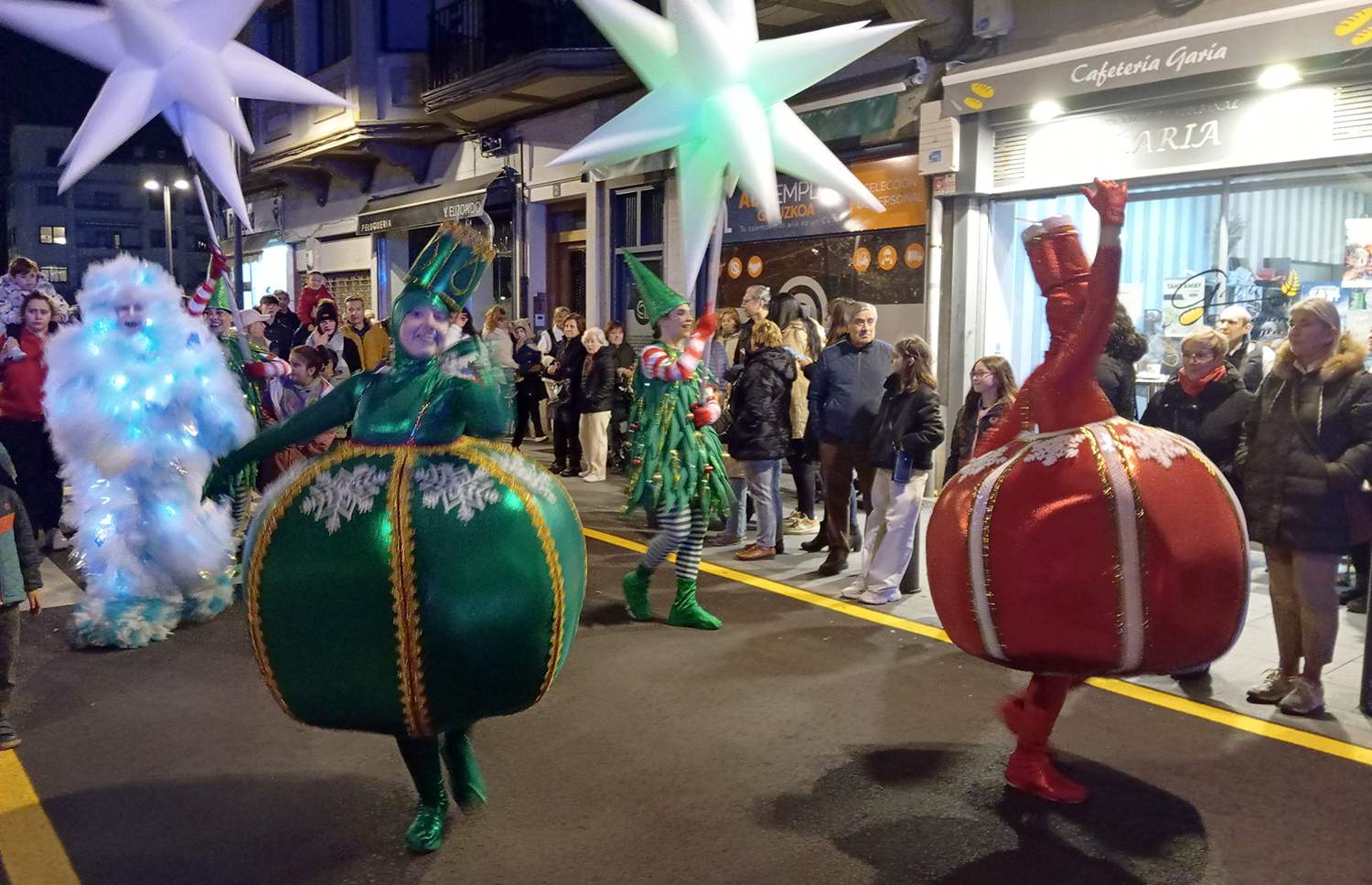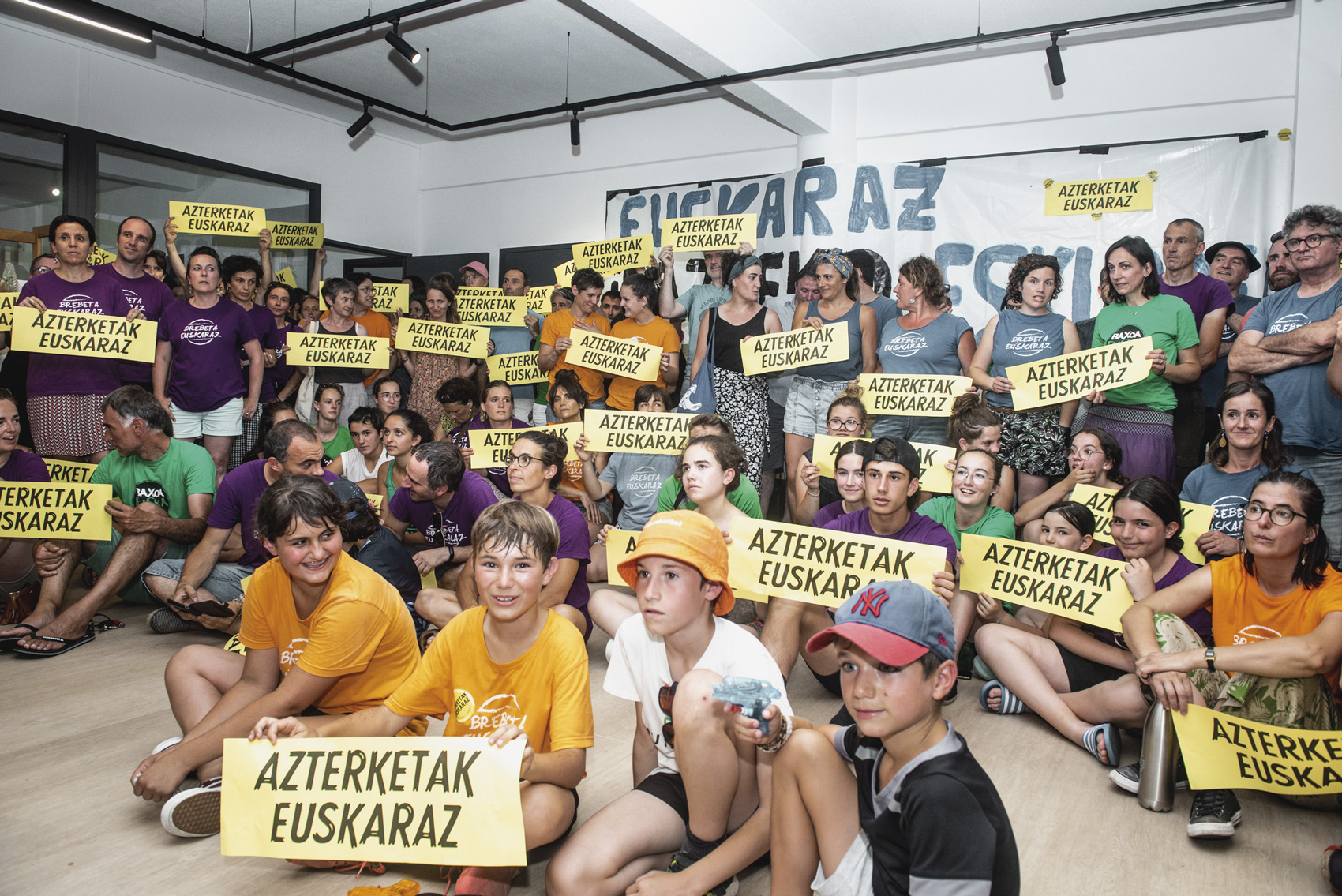"We have to immerse ourselves in small jobs, because we won't meet great needs."
- Conference of the Royal Academy of the Basque Language in Álava two years ago. Among the many participants, two very special guests. The mayors of Llodio and Amurrio, both professors of Euskera. Josune Irabien is the highest authority of the City of Amurrio.
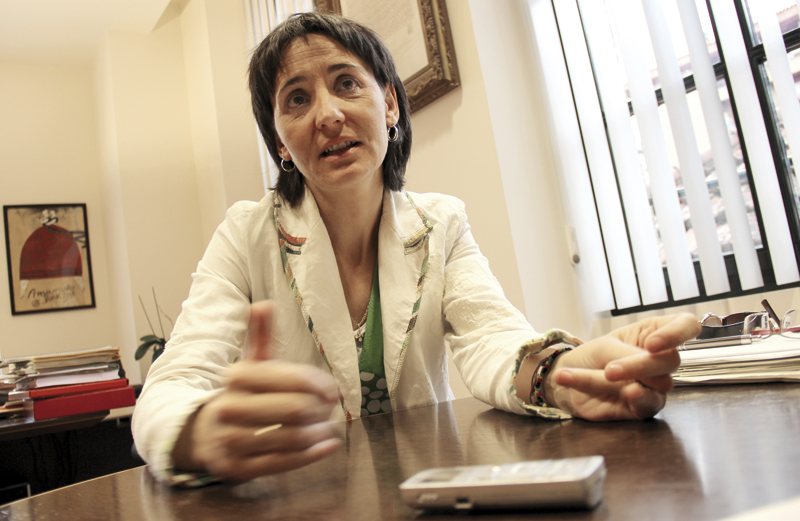
And what is the path that the Basque Professor has taken to the mayor's office?
I started military at the PNV at the age of 22. Internal work, in any case. First, passively and then more actively. I have also completed several stages in the game. To begin with, I was a member of the Municipal Plenary. Since 2003, I participated in the General Meetings of Álava. He worked as an Euskera professor in an Euskaltegi in Vitoria-Gasteiz and, at the same time, in the General Boards. It was hard to do both, but we did. And the General Assembly, yes, a real school! Meanwhile, municipal elections were held, and in Amurrio the mayor of the town was Pablo Isasi, of EA, for twenty-four years. Despite the efforts of the PNV, it is not possible to take possession of the mayor! One day, half a dozen years ago, they started looking for another profile, I mean, to introduce it to the mayor. They turned to me and introduced me. We were very close, but Isasi also won. Two years ago, and after a participatory process with the people of the town called Zabaltzen, a very nice process, to tell the truth, I ended up in the city hall. I thought, however, to stay forever. I'm completing a cycle, nothing else.
Since 2011 we have presented you as mayor of Amurrio.
But I didn't immediately get to work, I was pregnant.
Work, politics, equality… Conciliation…
It has happened to more than one, even among my acquaintances. I finished my studies in 1993. It was also a time of crisis. I walked around doing little jobs without being a real job. In the meantime, along with these small works, I conducted several training courses. Thus, time passed, leaving the hope of having children until later. Unfortunately, in the case of women, we are unfortunately leaving motherhood for later on, because in the meantime other jobs have to be done, and we never end up doing those jobs. In my case, I stopped having a child until late, and I had a child at 41. A very nice experience that would certainly not have left until today so late. I've seen what happens to today's woman: either she has young children, or she leaves her for later.
Without men realizing the situation that this entails.
I don't know what happens in men's heads, but you know, men give less importance to certain things, ha, ha. It's possible that we women are tied up with a lot, or too many, before we have a child. Oh my God! Anyway, I'm enjoying a lot. My husband also tries to use a little Euskera he knows, and at home we have created an Euskaldun site. Well, it can be done, no doubt. Surely, as often happens in many cases, the little Basque who knows is not so small, because he knows enough, more than he thinks…
The error of the student who is learning the language, who knows less than what he knows.
People know more than they think. In some social areas it may not be easy, but I think the family gives another kind of support. Is that not the way it is said? That with a child it is easier to speak in Basque, because the child does not correct it. It is not customary to amend, and that helps to speak freely. I do, for my part, make some corrections to my husband, but I do not need to fix them too much, because they are wrong very little. In the family environment, without fear or embarrassment to make mistakes, we speak quieter. For example, when surveys are conducted, there is talk of “euskaldunes” and “quasi-euskaldunes”. Well, this field of “almost the Basques” is so broad that there is everything. If we started to probe, we would see that they see and understand television, that they listen to the parties and understand what the announcer says, that they have the ability to speak -- that they have more resources than they imagine. I do not doubt that.
In the days that Euskaltzaindia held two years ago in Álava, the mayor of Laudio, Natxo Urkixo, and you yourself stood out among the authorities present.
In addition to being mayor, I am also responsible for Euskera of the City of Amurrio. I want to say a political leader – if you want an Basque councillor – not an Basque technician, who is Beñat Mendiguren. More than once I have been told to see what I have to do as the head of the Basque Country. I believe, however, that we really must be an example and an example on the part of the authorities, that a cross-cutting approach is necessary. As in the issue of youth and women. I have an observatory here: every day I see how many writings enter the City Hall, who enters, or leaves, Basque… The mayor gives me a lot of perspective in order to make a decision about it. Of course, I come from the Basque world and I have internalized the tools of language, and that makes it easier for me to join the Basque world, normally. Changes are happening, in total naturalness, without forcing anything.
Does it not give the Basque, in addition to prestige, the centrality, the fact that he is the leader of Euskaltzaindia?
Yes, but in itself, without having to strive for it. And, without a doubt, you will see more easily the shortcomings and strengths of the Basque country. In the case of the leader of Euskaltzaindia, it will be important to highlight the identity of the Basque Country, in the most natural way, normally, but to underline it.
What do your labor relations consist of at the City Hall of Amurrio? I refer, of course, to language. What is the place of Euskera?
I can say that some meetings are held in Basque. And with fellow Euskaldunes, there is no doubt, we do so in Euskera. Well with the secretary, with a working woman... with the Euskaldunes, in Euskera. That would not have been possible in the previous parliamentary term. For the rest, depending on the work environment, we do so in Basque or Spanish. Also by the social partners. In any case, there is a question that is asked more than once, which was not previously asked: “This meeting, in Basque or in Spanish?” There was no alternative before. But not everything is nice and nice...
There are no roses without thorns…
That's it. We still have major deficiencies as far as the written Basque is concerned, for example. Doing it in bilingual means acting in two, it is a job and, therefore, we have a lot of room for improvement, both in the field of internal and external communication.
At the time of the former mayor there was no possibility of performing several works in Basque. Yes, this time. Let us suppose a next legislature, after two years of elections, or in six. If the mayor is not Euskaltzale, is the Basque going to go back to the City Hall of Amurrio?
I don't think so. I see myself in the process of normalization of the Basque Country. I guess the one who comes after me will walk the same way. I don't think I can do anything else. That would be a big step backwards. In Amurrio, Llodio, Orduña, Artziniega, Okondo… they are mayors, Basque lords and ladies. This trend is unstoppable.
“Immovable.”
That is what I see. This is, of course, related to political orientation. The region of Ayala is Abertzale, yes or yes. There is no choice. One way or another, from here to Bilbao, you only have two options right now, the PNV or Bildu. And it will go on. And when the elections come, I'm sure in your candidates, on your lists, there will always be some Euskaltzale. I believe that if the parties were to take another path, they would fail.
The mayor of Amurrio has concerns, jobs and tasks that are not the Basque.
Yes, as he has. There are many tasks and headaches. Most seriously, the situation created by the crisis. We started the legislature at a bad time. The crisis has hit society, unemployment and the change in the quality of life are there. And the City Hall itself has lower economic resources than a few years ago. Much worse. On the contrary, as far as management is concerned, we must try to highlight the least possible reduction in resources. The budget of this city council for the year 2008 is EUR 25 million. We are not managing 14 million now. In five years, economic resources have been drastically reduced. And yet we must try to maintain the services and, if we do not maintain them, minimise the loss possible. People know what the situation is… This City Hall has had a lot of money, and at one time the City Hall of Amurrio has dedicated itself to building several large infrastructures. We entered the mayor and we saw that there was a debt of three million, and we had to pay it too! We are still paying. But that is the key, that the services should be maintained with little money.
Greater burden on large infrastructures.
Today we are not in the construction of large infrastructures. On this street, or on the sidewalk, you have to change the slab to change it. Maybe it hadn't been done before because we were working hard on big infrastructures. Today we have to change the slab. And people thank us for that! These are small things, but we have to dive into those small tasks, because we won't be able to meet the big needs.
He was in Donostia, at the International Meeting of Mayors for Coexistence.
Yes, I did. I think that is a step forward. I am left with what Lokarri's coordinator, Paul Ríos, said. He said that ETA is over and it seems that we are not talking about it anymore. He said that you have to create movement, talk and talk, because it's not yet closed. He cited the case of Ireland, a long process that lasted years. We cannot stand still, we have to talk… I believe that Basque society wants peace, indeed. But the roadmap is marked by political parties, and people often comply with what some political parties say. Perhaps the role of the political parties has been too great, for better and for worse, and as the parties are fragmented, they have also fragmented, to put it mildly, the Basque society itself.
You are a member of a political party.
Yes, and I am reflecting from within… The fragmentation is not really of Basque society, but of political parties. The mayors meeting in Donostia-San Sebastian stressed the importance of, inter alia, dialogue with all political parties. But if at the municipal level, meeting together as spokespersons, a party spokesperson stands up and leaves the room, there is no possibility of speaking. And yet, in that we have to try to talk, to talk, to talk to each other. I believe that a great deal of work can be done at the municipal level.
“Egunero pertsiana irekitzea ez da erraza guretzat, baina langabezian dagoenari aukerarik ezin emanda ibiltzea oso gogorra egiten zait. Erakunderik hurbilena dela diote udala, eta ezin lagundu izatea… Madrilek ezartzen dizkigun arauak ere hor dira, jendea zuzenean ezin dugula kontratatu diote arau horiek. Beharrak ikusten dituzu, ezin haiei erantzun… Etsigarria da”.
“Gainditu gabeko ikasgaia nuen euskara. Unibertsitatera aurretik, konturatu nintzen ez nuela euskaraz ikasteko aukerarik. Unibertsitatera heldu nintzenean, bi talde ziren, euskarazkoa eta gaztelaniazkoa. Batzuek aukera egiteko modua zuten. Nik ez. Ez nuen zalantzarik izan. Euskaraz ikasten hasi nintzen Bilbon bertan, Bilbo Zaharra euskaltegian, baina nire ogibidea euskara izango zela pentsatu gabe”.
“Hitz solteak esatetik esaldiak egitera jauzi egin zuenean, ‘ama, kalera goaz?’ esan zuen lehenengo. Beraren lehenengo esaldia! Korrika idatzi nuen koadernoan: ‘Lehenengo esaldia egin du gaur, eta gainera euskaraz!’. Poza, jakina”.
Josune Irabien Marigorta (Amurrio, 1970). Urtarrilaren lehenengoan jaio zen, gaueko 00:30ean, etxean, praktikanteak amari bihotz emanik. Politika Zientzia ikasketak egin zituen 1993an, Bilbon, eta orduantxe ikasi zuen euskaraz. Euskara irakasle izan zen Gasteizko Hegoalde euskaltegian zazpi urtez, eta Urduñako euskara teknikari 2004tik 2011ra, Amurrioko alkate izateko hauteskundeak irabazi zituen arte. Tartean, bestelako lan txiki mordoxka egin zuen, baita futbolean jokatu ere, oraingo Athletic taldearen aurrekoan. Arabako futbol hautatzaile ere izana da. Eudel-eko exekutibako kide da.
“Proiektu berriari ekin diote bailaran. Aiaraldean du izena, hamasei orrialdeko euskarazko hamabostekaria. Aiaraldea.com-ekin hitzarmena sinatua dugu, bailarako udal guztien inplikazioa lortu zuten iaz, eta interneten ari dira harrezkero. Baina orain paperekoa egin dute”.
Gabonetako argiak pizteko ekitaldia espainolez egin izanak, Irungo euskaldunak haserretzeaz harago, Aski Da! mugimendua abiatu zuen: herriko 40 elkarteren indarrak batuta, Irungo udal gobernuarekin bildu dira orain, alkatea eta Euskara zinegotzia tarteko, herriko eragileak... [+]









